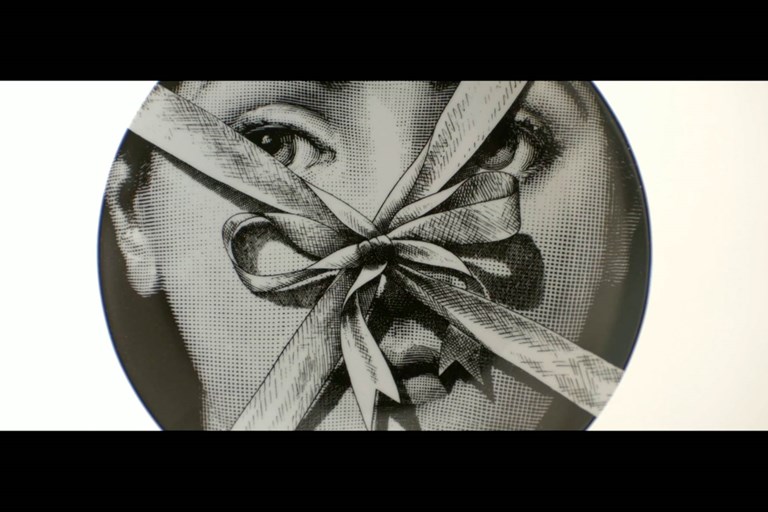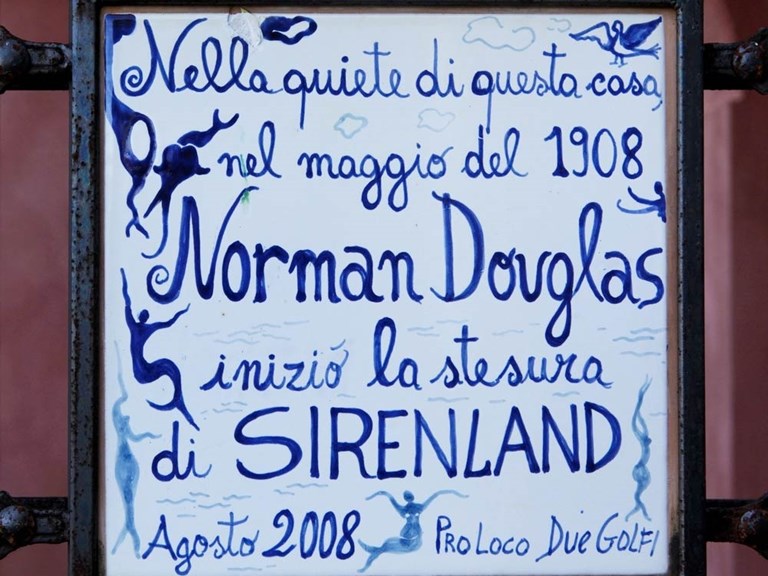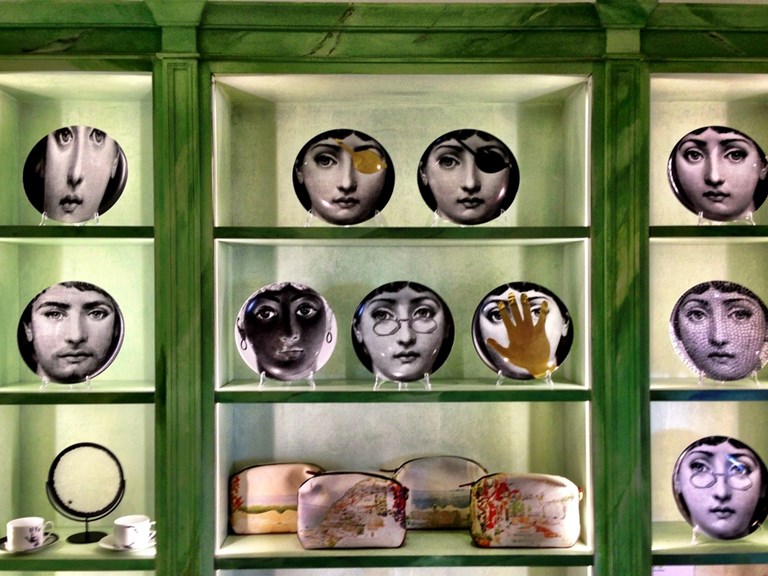LE SIRENUSE. A FILM BY POPPY DE VILLENEUVE.
20.05.2014 ART & CULTURE
The daughter of Justin de Villeneuve, Twiggy’s first manager and one of the key figures of London’s swinging sixties, Poppy began working for a slew of British and US publications as soon as she graduated from the London College of Printing in 2002, her subjects ranging from fashion shoots to portraits of Carla Bruni, Waris Ahluwalia, John Waters and many others.
But more and more she found herself drawn towards personal projects, using her photographs to tell stories and engage emotionally with the viewer, as in a series of portraits of denizens of the Rio Grande borderland region, entitled This is a story of hope and we are all characters in it, which formed the basis of a 2008 show at the Paradise Row gallery in London. It was a small step from here to video: one that Poppy first took in 2009, when the New York Times asked her to make a short film documenting the Coachella Music Festival in the Colorado Desert.
In 2013, she was invited to shoot a short film at Le Sirenuse. The remit was wide open, the only proviso being that the place should inspire the narrative, rather than a narrative being imposed on the place. The result, shot over five days in September 2013, is called simply Le Sirenuse. On the occasion of the film’s online launch, the Sirenuse Journal asked Poppy to talk about the creative process behind the project, and how the emotional energy of this sea-perched haven fed into a story of a young woman teetering in suspended animation between the life she is leaving behind and a bright, but out-of-focus, new future.
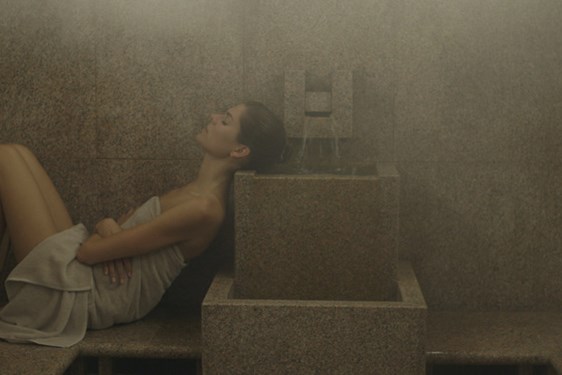
View
Poppy on her working methods:
“I try to leave room for inspiration and mistakes within the process, because I think that is more intimate. Intimacy and honesty are important, they’re things I try to find in every work. Sometimes it comes through in the story, sometimes in the way it’s shot. When I first went to Le Sirenuse I took a lot of location photos, and made a list of all the things I liked. I bumped into a friend from high school who was staying there quite by chance, and we went out on the boat you see in the film, and visited the sea cave you see in the film. Then I went away, and the pieces of the puzzle started to come together. I sat down and wrote it, really quickly”.
Poppy on how the story took shape:
“In the back of my mind was the fact that so many people honeymoon in Le Sirenuse… and also the fact that we women are complicated creatures, and we can have mixed feelings. We have this fantasy idea of how things should be, but the reality is always a little different – not necessarily worse, but different. I was thinking about my own mother, who got married at twenty, and about the switch you make at these times between old family and new partner. And I was probably also thinking about the sea, and this place perched above it. I find Positano, and the hotel, quite an emotional place. You’re on the edge: there’s this physical sensation of being right up against something, and maybe that’s what I brought home with me – the fact that there are these turning points, and big questions. I do believe that there are places whose emotional history you can feel. They keep it close. And I love that fact that it’s such a personal hotel, a place that is permeated by the personality of the family that owns it”.
Poppy on the voice-over dialogue:
“If you have something that is important to you, that you need to express, I think you often have to talk to another person that you’re close to, that you trust, to allow the emotion to come through. That’s why I have the new bride in my film leave a message on her mother’s answering machine, where she’s working out these difficult thoughts. Leaving a message is often like saying something to yourself, no? It’s like writing your diary, but to another person. And in the end I decided to do the voice myself, so that’s me you hear talking. Because I knew exactly the nuances of the writing, it just felt easier that way”.
Poppy on why this is not your standard hotel video:
“Often, images of hotels – especially in advertising and on websites – tend to be happy, lovely, perfect. And while Le Sirenuse is all that, for me, as a filmmaker, it was as if I couldn’t see it unless I allowed a more normal, neutral story to exist within it. You have to play against the ‘happy happy’ vibe or you get lost”.
Poppy on the actor and actress:
“The casting happened very naturally. Sónia Balacó is a Portuguese actress, a former model, very sweet, fragile, open, and without a big agenda of having to show she’s acting. Riccardo, who plays the husband, is a local guy, not an actor, from Positano, who just happened to be there! They’d never met before, and I think that helped – you need a little tension for a screen relationship to work.
Next up, Poppy is prepping a full-length documentary – her first – on the world of Dallas strip clubs. “More and more”, she says, “ I feel the need to tell stories about failure, and confusion, and all those things that feature films don’t often address. Documentary teaches us that real people can be our heroes, if we see them in the right context”.
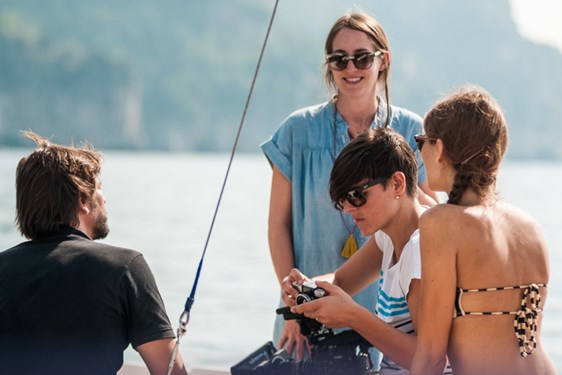
View
Poppy de Villeneuve on location. © Andrea Scala
To see another young filmmaker’s take on Positano’s iconic hotel, check out this earlier post on John Lindquist’s Spring Summer.
Le Sirenuse Newsletter
Stay up to date
Sign up to our newsletter for regular updates on Amalfi Coast stories, events, recipes and glorious sunsets
